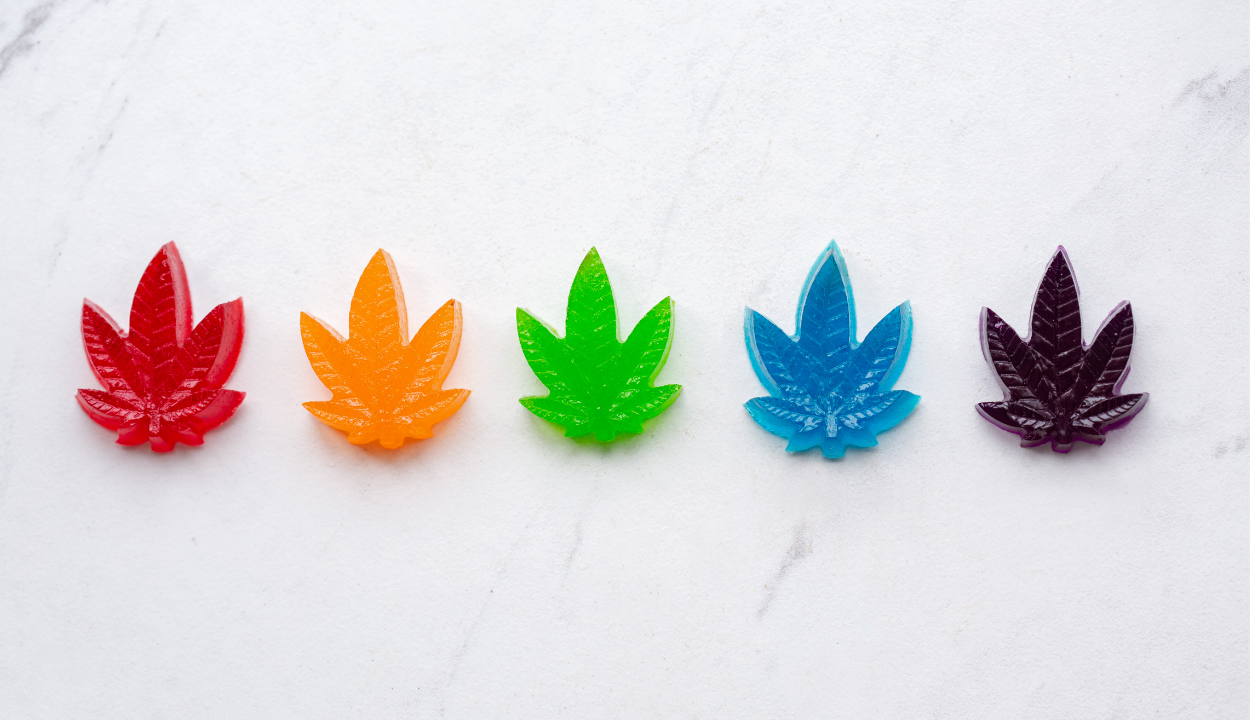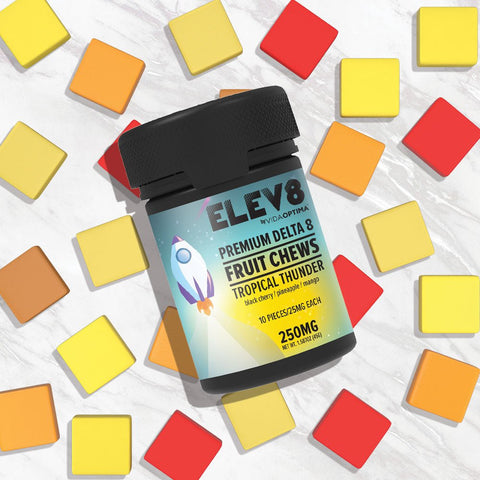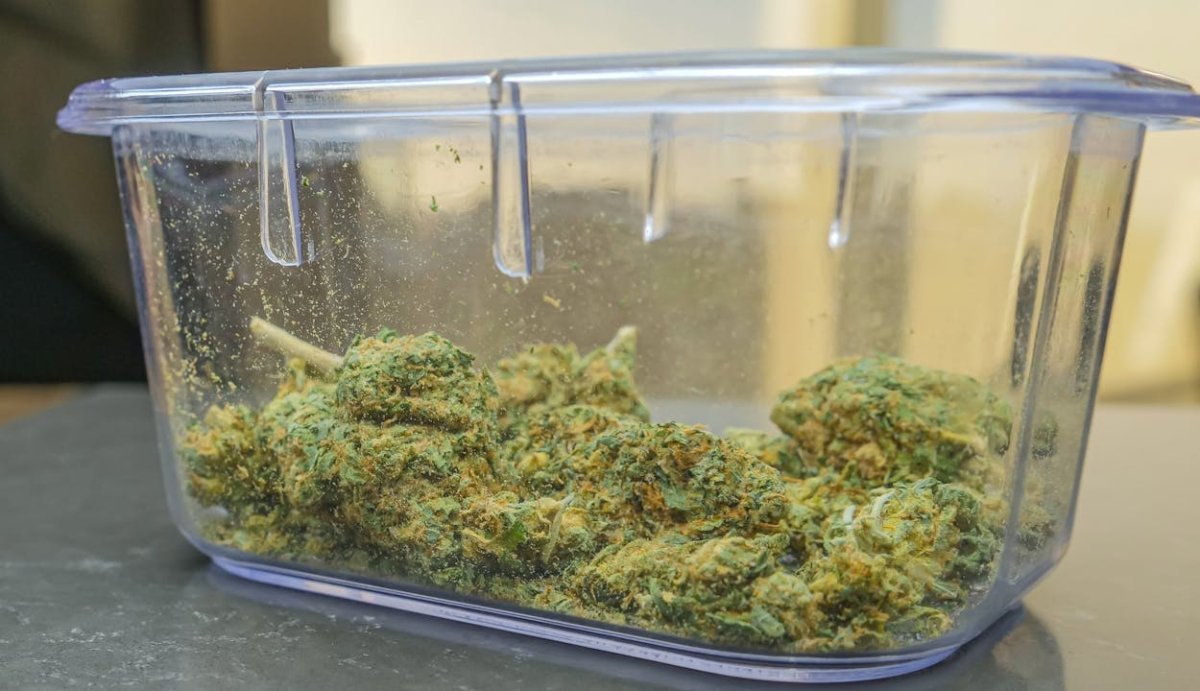Your Cart is Empty
FREE SHIPPING ON ALL ORDERS $75+
If you've been scanning cannabis labels and wondering, “What does a high THCA percentage actually mean?”—you’re not alone. THCA, or tetrahydrocannabinolic acid, is one of the most talked-about cannabinoids on the market today. It plays a significant role in cannabis potency and therapeutic value, especially for those seeking strong effects or specific wellness benefits.
In this guide, we’ll break down exactly what a high THCA percentage means, why it matters, and how it affects your cannabis experience—from potency to legality.
THCA is the precursor to THC, meaning it becomes psychoactive only when heated (smoked, vaped, or baked).
A high THCA percentage generally signals strong potency, especially once converted into Delta-9-THC through decarboxylation.
THCA offers unique therapeutic potential in its raw form, showing promise for conditions like inflammation, seizures, and neurodegenerative diseases.
Side effects are typically mild, but may include dry mouth, dizziness, or digestive discomfort—especially in high doses.
Proper labeling and legal awareness are key, as THCA is often regulated similarly to THC depending on your state laws.

THCA, or tetrahydrocannabinolic Acid, is a compound found in raw cannabis plants. It's the precursor to THC (Tetrahydrocannabinol), the psychoactive component in cannabis. THCA doesn't produce the high associated with THC until it's decarboxylated through heat, such as smoking or cooking.
THCA levels are measured in cannabis products to indicate potency. Because THCa becomesTHC when exposed to heat, this gives us an indication of how potent a strain is, or rather how much Delta-9-THC it will provide when smoked, vaporized, or baked into Delta-9 edibles.
Factors like genetics, growing conditions, and harvest time affect THCA levels. Proper labeling ensures consumers know the potency of THCA in the product. So, when you read a cannabis label you may see something similar to the following:
THCA: 19.7%
THC: 0.25%
This essentially translates to a THC content of 20% since THCA will become THC as soon as it is heated.
So, what's an average or high THCA level, and why do consumers seek products with high THCA percentages? Generally speaking, high THCA content just means more potent psychoactive effects. However, some people experience greater therapeutic potential from THCA-rich cannabis strains, and THC-A may even offer enhanced benefits of its own.
When you see a cannabis product labeled “99% THCA,” it usually refers toTHCA isolate, also known as THCA crystalline. This is the purest form of THCA available—refined into a nearly flavorless, odorless crystal with almost zero additional cannabinoids or plant compounds.
Because THCA converts into Delta-9-THC when exposed to heat, this concentrated form is incredibly potent once dabbed, vaporized, or smoked. While it doesn’t produce psychoactive effects in its raw form, once heated, the effects can be extremely strong—making it best suited for experienced users seeking powerful results.
Research suggests that THCA possesses therapeutic properties with potential medical applications. It acts as a neuroprotectant, benefiting conditions like multiple sclerosis, Alzheimer's, and Parkinson's disease. Additionally, it may stimulate appetite and slow the proliferation of cancerous cells. Some specific conditions for which THCA shows promise include:
Cancer
Seizures (including epilepsy)
Alzheimer’s disease
Cachexia
Take a quick look at the available research:
Anti-Inflammatory Properties:THCA has shown anti-inflammatory effects, which could potentially be beneficial for various inflammatory conditions like arthritis.
Neuroprotective Potential: Some studies indicate that THCA may have neuroprotective properties, potentially aiding conditions like Parkinson's disease and Alzheimer's.
Nausea and Appetite:THCA might help in alleviating nausea and stimulating appetite, which could be beneficial for individuals undergoing treatments like chemotherapy.
Metabolic Benefits:THCA may help to stimulate metabolism and prevent metabolic disease due to diet-induced obesity.
Anticonvulsant Effects: Some evidence has found THCA to provide anticonvulsant effects in animal seizure models.
These potential benefits make THCA an area of active research and exploration.
Keep in mind that different products are absorbed differently. Since some require heating (like inhalation methods), you’ll be converting THCA into Delta-9, so you’ll only be able to reap the potential benefits of traditional THC. The same is true when you make your own edibles at home–unless THCA is added after the heating process, it will be converted into Delta-9. Keep this in mind if you want to specifically reap the benefits of THCA.
As with any substance, it's essential to be aware of potential side effects. While THCA is generally considered safe, individuals should be mindful of the following:
Digestive Issues:In some cases, consuming large amounts of THCA may cause digestive discomfort or mild nausea.
Allergic Reactions:People with cannabis allergies could experience allergic reactions when exposed to THCA, although such cases are rare.
Lack of Research: Due to limited research, the long-term or cumulative effects of THCA are not yet fully understood.
Because THCA may potentially induce some of the same side effects of THC, there are other potential THCA side effects you should be aware of:
Dry mouth (cottonmouth)
Red eyes
Dizziness
Increased heart rate
Fatigue
It's crucial to consult a healthcare professional before incorporating THCA into your wellness routine, especially if you have any underlying health conditions.
Different consumption methods affect THCA availability and potency. Typically, THCA is found in traditional cannabis flower, and cannabis is smoked, vaporized, or cooked to make edibles. The heat turns THCA into Delta-9-THC so that it produces significant psychoactive and therapeutic effects.
But what if you want to consume THCA in its natural form? You have a couple of options:
Raw Cannabis:Consuming raw cannabis preserves THCA as it hasn't undergone decarboxylation.
Juicing and Blending:Juicing cannabis or incorporating it into smoothies can provide THCA without the psychoactive effects.
Vape cartridges that feature THCA typically contain a blend of THCA and other cannabinoids, and once heated, that THCA converts into THC. A high THCA percentage in vapes generally ranges from 70% to 90% total cannabinoids, with a significant portion made up of THCA.
These vapes are known for delivering fast-acting and intense effects, depending on how much THCA is present and how it’s formulated. Be sure to check the lab results for a breakdown of both THCA and activated THC levels, so you know exactly what to expect from your vape session.
THCA isn’t commonly found in traditional gummies, since most edibles are cooked or processed with heat, which automatically converts THCA into Delta-9-THC. However, some products are specially formulated to retain THCA in its raw, unheated form, offering a unique way to consume it without the psychoactive effects.
A high THCA gummy typically contains 10–50 mg of THCA per piece, but these products are still relatively rare. If you're shopping for THCA edibles, make sure the product specifies that it contains active THCA, not just total THC—and that it’s stored properly to maintain potency.
Concentrates are known for their potency, but just how high do THC percentages go? Many premium extracts, like wax, shatter, live resin, or diamonds, contain 70%–90% total THC—some even higher. These products often combine activated THC with THCA, offering a powerful and fast-acting experience once heated.
Because of their strength, high-THC concentrates are recommended for seasoned cannabis users who are familiar with their tolerance levels. A small dab goes a long way—so always start slow and consult lab testing for exact cannabinoid content.

In general, there are no legal limits in place for how much THCA a cannabis strain can contain, but the most potent strains usually max out around 30%. There are limits on how much THC (or THCA) a person can possess at one time, but this varies by state and only applies in states where cannabis is legal for either medical or recreational use.
There are regulations in place regarding THCA content and labeling. Compliance with testing standards ensures accurate labeling, which makes it easier for consumers to identify the THCA content of a particular product and to abide by THC quantity limits. Understanding these regulations is crucial for both consumers and producers to navigate the legal landscape surrounding cannabis products.
While THCA generally lacks psychoactive effects, consuming large amounts may still lead to mild intoxication. It's essential to consider potential interactions with medications and follow safe usage guidelines, especially when using high-THCA products.

A high THCA percentage in cannabis products signifies intense psychoactive effects and potent therapeutic potential. THCA is directly related to Delta-9-THC and falls under the same state regulations, so it’s imperative to be informed of local laws when buying or consuming THCA products. Stay informed, stay safe, and embrace the potential of high THCA cannabis products for your well-being.
Check out our hemp THC collection of vaporizers, edibles, hemp flower, and more. All of our products are third-party tested and 100% Farm Bill compliant, meaning they are legal in the U.S.
Greening out refers to consuming too much THC or cannabis and experiencing negative effects like dizziness, nausea, anxiety, sweating, or even vomiting. It's more common in high-dose or low-tolerance users and usually passes with rest, hydration, and time.
Not in its raw form. THCA is non-psychoactive until it's heated—through smoking, vaping, or baking—at which point it converts into Delta-9-THC, the compound responsible for the "high."
THCA is the precursor to Delta-9-THC. When heated, THCA undergoes decarboxylation, a chemical process that turns it into active Delta-9, making it psychoactive.
A product labeled 90% THCA contains an extremely high concentration of tetrahydrocannabinolic acid. Once heated, most of that THCA converts into THC, delivering very potent effects similar to or stronger than traditional high-THC cannabis.
THCA by itself is not psychoactive, meaning it won’t get you high when consumed raw. However, when heated, it becomes Delta-9-THC, which is psychoactive. So its effects depend on how it’s consumed.
The entourage effect refers to the synergistic interaction between cannabinoids, terpenes, and other cannabis compounds that can enhance therapeutic benefits. THCA may contribute to this effect when consumed with other cannabinoids, especially in whole-plant or full-spectrum products.
“Anti-Inflammatory Activity in Colon Models Is Derived from D9-Tetrahydrocannabinolic Acid That Interacts with Additional Compounds in Cannabis Extracts”https://www.liebertpub.com/doi/pdf/10.1089/can.2017.0027
“Tetrahydrocannabinolic acid is a potent PPARγ agonist with neuroprotective activity”https://www.ncbi.nlm.nih.gov/pmc/articles/PMC5731255/
“Tetrahydrocannabinolic acid A (THCA-A) reduces adiposity and prevents metabolic disease caused by diet-induced obesity”https://pubmed.ncbi.nlm.nih.gov/31706843/
“Evaluation of the Possible Anticonvulsant Effect of Δ9-Tetrahydrocannabinolic Acid in Murine Seizure Models”https://www.ncbi.nlm.nih.gov/pmc/articles/PMC8864425/
Comments will be approved before showing up.



